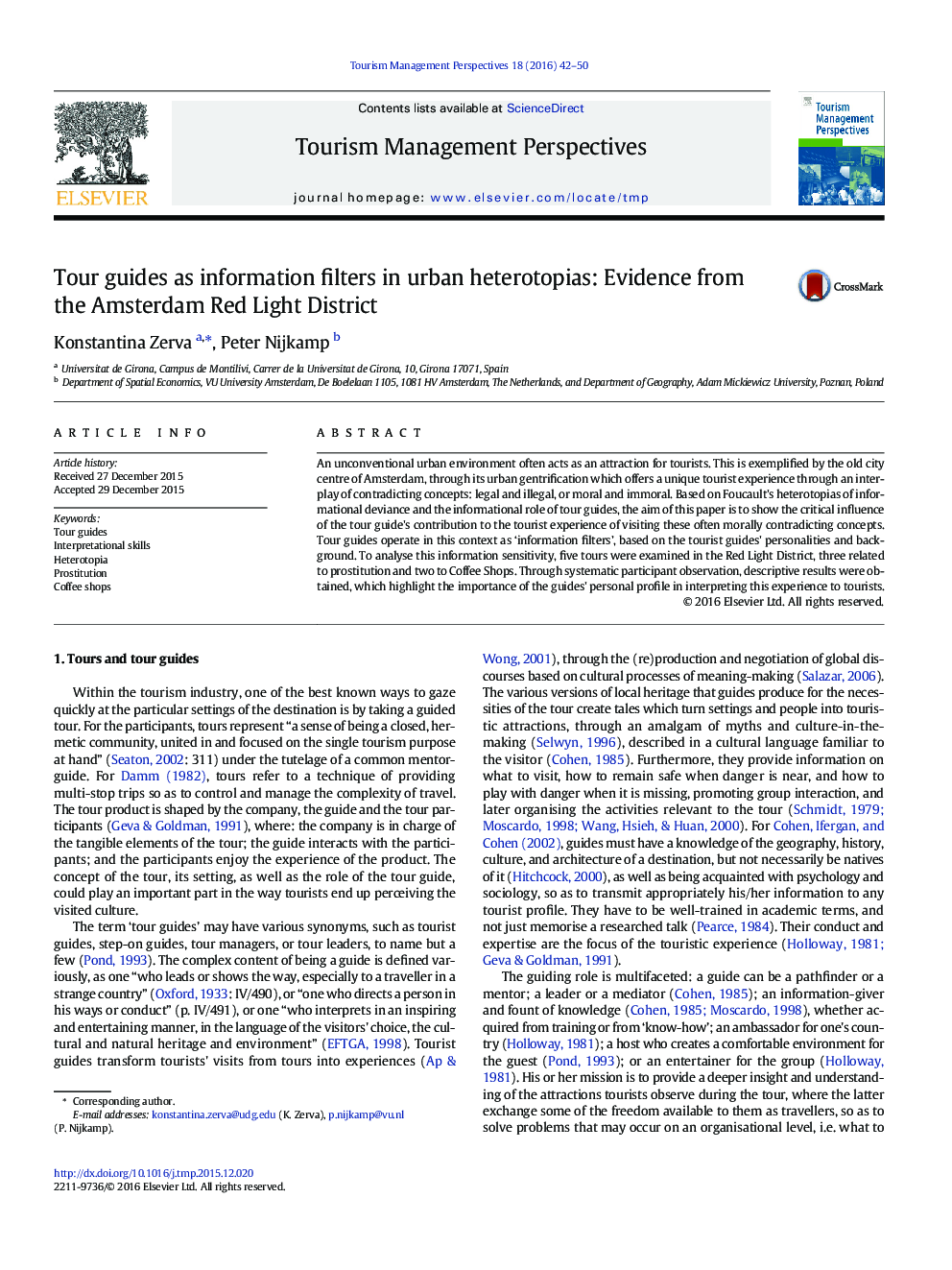| کد مقاله | کد نشریه | سال انتشار | مقاله انگلیسی | نسخه تمام متن |
|---|---|---|---|---|
| 1013582 | 1482660 | 2016 | 9 صفحه PDF | دانلود رایگان |
• Participant observation is conducted in five tours in Amsterdam's RLD.
• The interpretational quality of the tour guides is analysed.
• Tours on the same setting offer different experiences based on the guides' profile.
• Being a native and personally involved with the setting alters the guides' interpretation.
• Balance between emotional and cognitive elements of tourist districts differs.
An unconventional urban environment often acts as an attraction for tourists. This is exemplified by the old city centre of Amsterdam, through its urban gentrification which offers a unique tourist experience through an interplay of contradicting concepts: legal and illegal, or moral and immoral. Based on Foucault's heterotopias of informational deviance and the informational role of tour guides, the aim of this paper is to show the critical influence of the tour guide's contribution to the tourist experience of visiting these often morally contradicting concepts. Tour guides operate in this context as ‘information filters’, based on the tourist guides' personalities and background. To analyse this information sensitivity, five tours were examined in the Red Light District, three related to prostitution and two to Coffee Shops. Through systematic participant observation, descriptive results were obtained, which highlight the importance of the guides' personal profile in interpreting this experience to tourists.
Journal: Tourism Management Perspectives - Volume 18, April 2016, Pages 42–50
